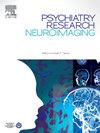Understanding caffeine’s impact on sustained attention in early phase psychosis: Unveiling cognitive insights through the use of EEG
IF 2.1
4区 医学
Q3 CLINICAL NEUROLOGY
引用次数: 0
Abstract
Cognitive impairment, particularly in attention and working memory, is a notable feature of schizophrenia (SZ). Individuals with SZ frequently consume high levels of caffeine, often exceeding 550 mg daily, yet the cognitive effects of this excessive intake – especially in the early stages of the illness – remain unexplored. This study is the first to investigate the acute effects of caffeine on cognition in SZ using a rigorous double-blind, placebo-controlled design. Utilizing electroencephalography (EEG)-derived event-related potentials (ERPs) and the AX-continuous performance task (AX-CPT), we examined behavioural and neurophysiological markers of sustained attention, including P300 amplitude and latency.
Our sample included individuals within the first five years of their SZ diagnosis (n = 11) and healthy controls (n = 14) aged 20 – 38 (HC: M = 22.5, SZ: M = 28.2).
Findings revealed that within the caffeine condition, individuals with SZ exhibited enhanced P300 amplitudes and shorter latencies for the priming stimulus compared to controls. Behavioural performance, however, did not support this and found individuals with SZ performed worse than controls, suggesting the enhancement of cognitive resources during the caffeine condition does not significantly improve performance in individuals with SZ. Correlational findings suggest a potential interaction between symptomology and caffeine’s cognitive effects, whereby increased positive symptoms were associated with increased amplitudes, while, negative symptoms were associated with latency findings.
These findings challenge the assumptions that caffeine consumption enhances cognitive function in SZ, at least at the doses tested. Future research should explore caffeine’s effects at intake levels that are more representative of each individual’s habitual consumption to better determine whether chronic high doses exert differential effects on cognition in this population.
了解咖啡因对早期精神病持续注意力的影响:通过使用脑电图揭示认知见解
认知障碍,特别是在注意力和工作记忆方面,是精神分裂症的一个显著特征。患有SZ的人经常摄入大量的咖啡因,通常每天超过550毫克,然而这种过量摄入对认知的影响——尤其是在疾病的早期阶段——仍未被研究。这项研究首次采用严格的双盲、安慰剂对照设计来研究咖啡因对SZ认知的急性影响。利用脑电图(EEG)衍生的事件相关电位(ERPs)和AX-CPT (AX-CPT),我们检查了持续注意的行为和神经生理标记,包括P300振幅和潜伏期。我们的样本包括年龄在20 - 38岁(HC: M = 22.5, SZ: M = 28.2)的个体(n = 11)和健康对照(n = 14)。研究结果显示,在咖啡因条件下,与对照组相比,SZ个体表现出增强的P300振幅和更短的启动刺激潜伏期。然而,行为表现不支持这一观点,并发现患有SZ的个体比对照组表现更差,这表明咖啡因条件下认知资源的增强并没有显著提高患有SZ的个体的表现。相关研究结果表明,症状学与咖啡因的认知效应之间存在潜在的相互作用,即阳性症状的增加与振幅增加有关,而阴性症状与潜伏期的发现有关。这些发现挑战了咖啡因摄入增强SZ认知功能的假设,至少在测试剂量下是这样。未来的研究应该探索咖啡因在摄入量水平上的影响,更能代表每个人的习惯消费,以更好地确定长期高剂量咖啡因是否对这一人群的认知产生不同的影响。
本文章由计算机程序翻译,如有差异,请以英文原文为准。
求助全文
约1分钟内获得全文
求助全文
来源期刊
CiteScore
3.80
自引率
0.00%
发文量
86
审稿时长
22.5 weeks
期刊介绍:
The Neuroimaging section of Psychiatry Research publishes manuscripts on positron emission tomography, magnetic resonance imaging, computerized electroencephalographic topography, regional cerebral blood flow, computed tomography, magnetoencephalography, autoradiography, post-mortem regional analyses, and other imaging techniques. Reports concerning results in psychiatric disorders, dementias, and the effects of behaviorial tasks and pharmacological treatments are featured. We also invite manuscripts on the methods of obtaining images and computer processing of the images themselves. Selected case reports are also published.

 求助内容:
求助内容: 应助结果提醒方式:
应助结果提醒方式:


